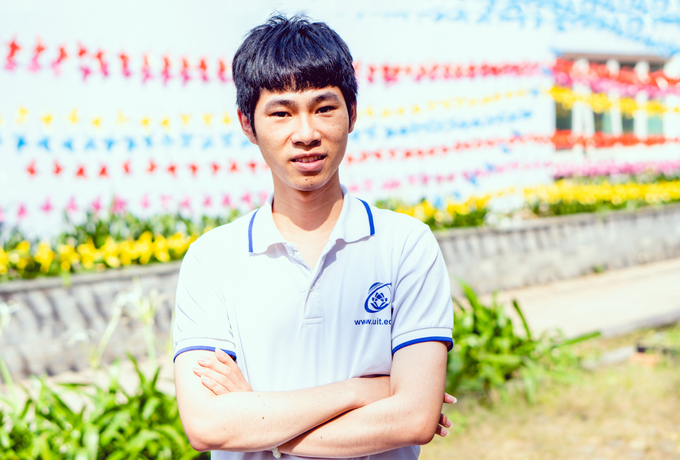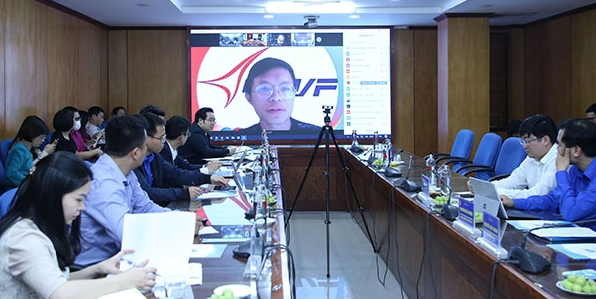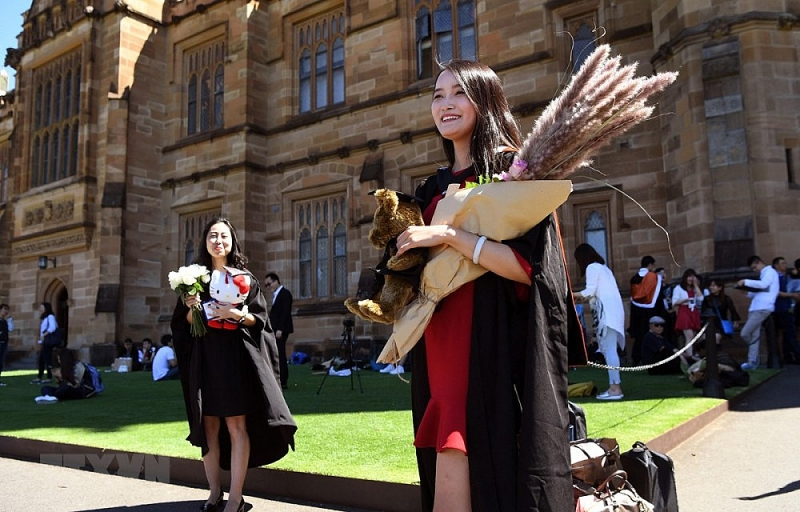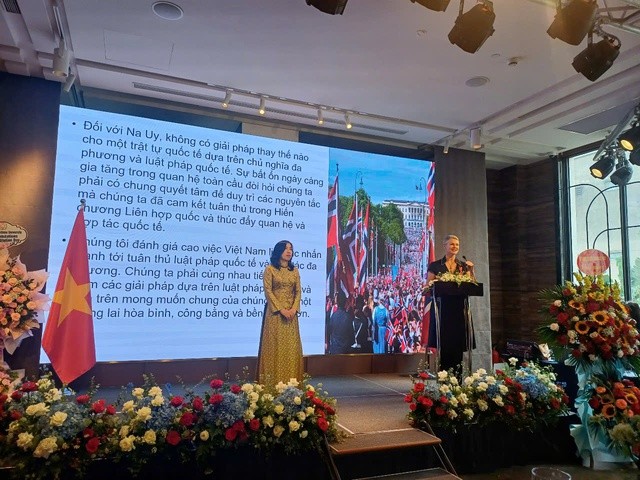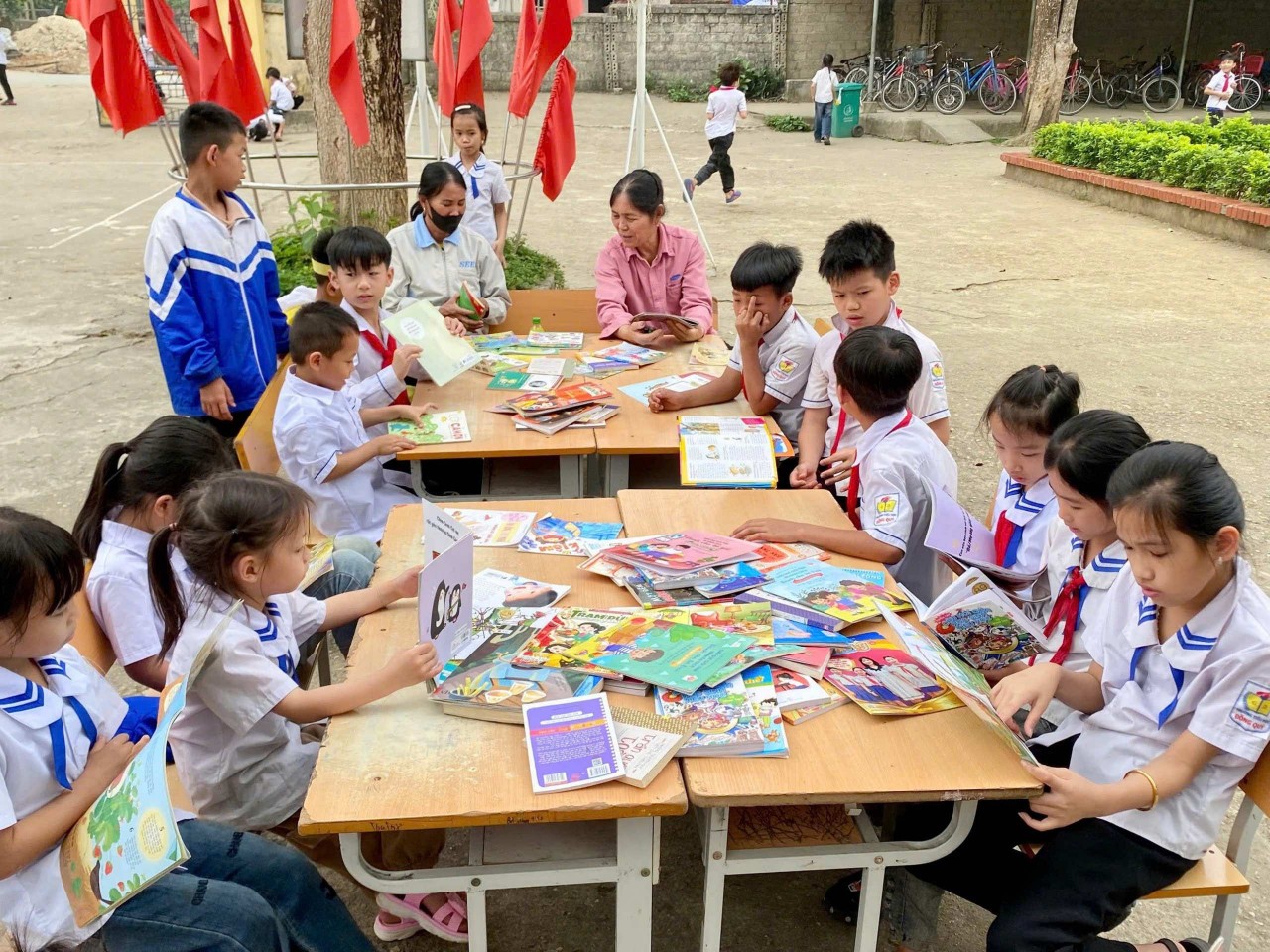Vietnamese students turn bagasse into decomposition medical masks
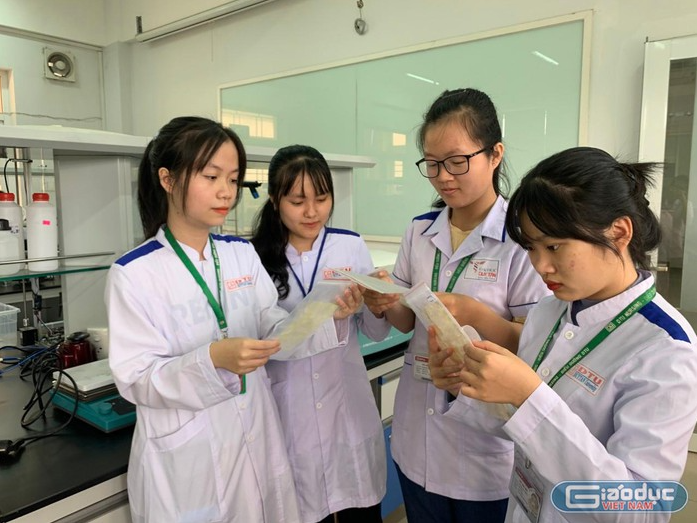 |
| Photo: Bao Moi |
After several times seeing piles of bagasse waiting to be taken away while sitting at a street soft drink shop near his university, Pham Van Thinh, a fourth-year student at Duy Tan University, came up with the idea to make use of the bagasse. Studying economy, Thinh understands little biochemistry. He, therefore, came to friends in Nursing Faculty to share the idea. Knowing that bagasse can decompose in the natural environment after about 30-60 days because it contains cellulose fibers, the group came up with the idea of using bagasse to make medical masks that is easier to decompose than conventional products, which helps reduce environmental pollution.
Early March 2020, Thinh and his friends seek ingredient sources from soft drink shops in their residence. According to Thinh, at the beginning stage, the group felt shy as no one believed that bagasse could be turned into medical masks. "At that time, we still did not know whether we could succeed with the final product, we only knew to try our best," said Thinh.
All further process was done in a laboratory that their university allowed them to use at the end of the school days. Bagasse was soaked with water, then boiled with caustic soda to turn into small fibers. At the end of this process, the group received a clear white liquid, which was then filtered to get the pure residue. This ingredient was further laminating and drying. "The finished product is thin, old yellow materials with no smell", Thinh said.
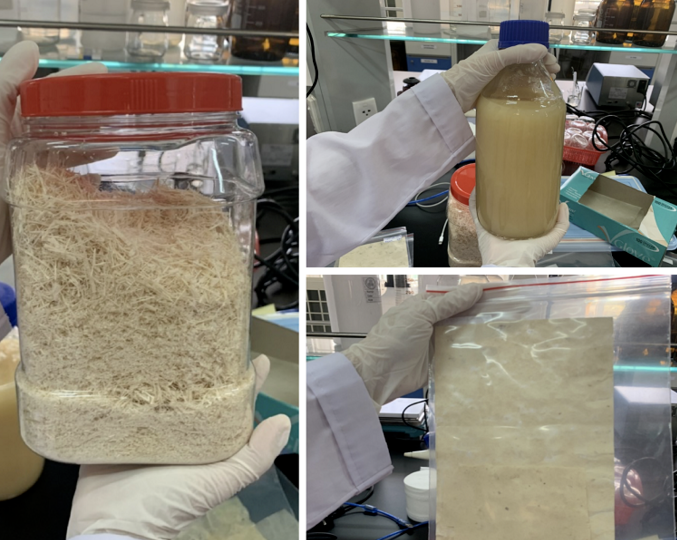 |
| Photo: VN Express |
However, due to its cellulose content, this material was absorbent and easily damaged. It took the group a month for further research. Thanks to the advice from the university's teachers, the group knew that they had to make a thin chitin layer from the shrimp shell, which resistant to water and antibacterial. Chitin was added to the outermost layer of the mask.
Through several tests, the chitin layer did not stay attached to the inside layers, making it difficult for the group at this first stage because this problem meant their mask could not resist water. "We then found out that the shrimp shell should have been ground more finely", Thinh said.
The second layer of the mask was then mixed with activated carbon and nanosilver to help prevent dust and bacteria. The tightly knit cellulose fibers combined with these two protective membranes can block 3-5 micrometers of microscopic droplets. The inner layer, which directly touched the users' skins, was compressed into a porous form to make the fabric softer, avoid causing irritation.
After 7 months of production, the first masks were sent to teachers and the group's friends, who then feedbacked that they found the mask breathable while causing no itching. Thinh said, the team sent samples to a number of hospitals and centers to test and evaluate the safety of the masks' material, and then improved the masks according to experts' opinion.
"If we can bring the products to the market, their selling price will be about VND 4,000 (USD 0,17) per mask. There are a number of companies who contacted the university, hoping to develop our products," Thinh shared.
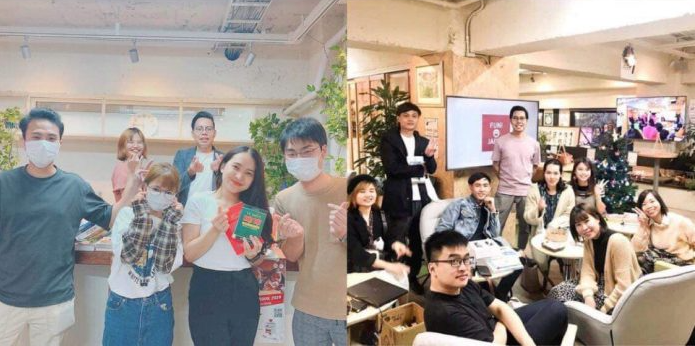 | Vietnamese students in Japan donate books to help children in remote regions Following the success of the 2020 VYSA CHARITY BOOK , the Vietnam Youth and Student Association in Japan continues to hold the event to help ... |
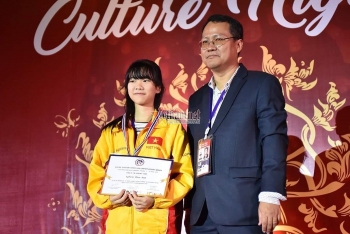 | Young Asian Chess Cup champion wins VND 3.3 billion scholarship With impressive study results, young Asian Chess champion 2019 Nghiem Thao Tam, 18, won a scholarship of VND 3.3 billion (nearly $170,000) to study computer ... |
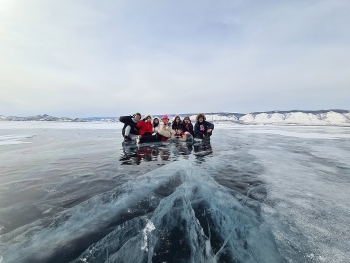 | Memorable experience of Vietnamese tourists in the deepest lake of the world Vietnamese tourists have experienced unforgettable memories when visiting Lake Baikal, the deepest one in its kind of the world. |
Recommended
 Handbook
Handbook
Vietnam Moves Up 8 Places In World Happiness Index
 Handbook
Handbook
Travelling Vietnam Through French Artist's Children Book
 Multimedia
Multimedia
Vietnamese Turmeric Fish among Best Asian Dishes: TasteAtlas
 Handbook
Handbook
From Lost to Found: German Tourist Thanks Vietnamese Police for Returning His Bag
 Handbook
Handbook
Prediction and Resolution for the Disasters of Humanity
 Handbook
Handbook
16 French Films To Be Shown For Free During Tet Holiday In Vietnam
 Handbook
Handbook
Unique Cultural and Religious Activities to Welcome Year of the Snake
 Handbook
Handbook

